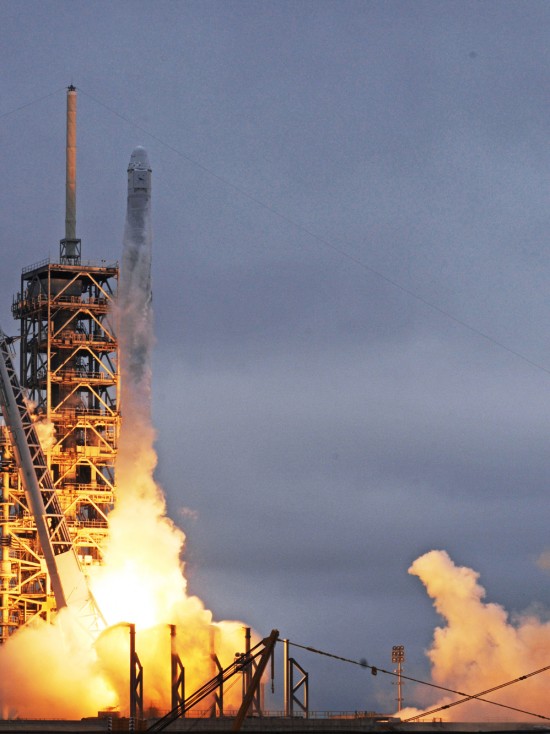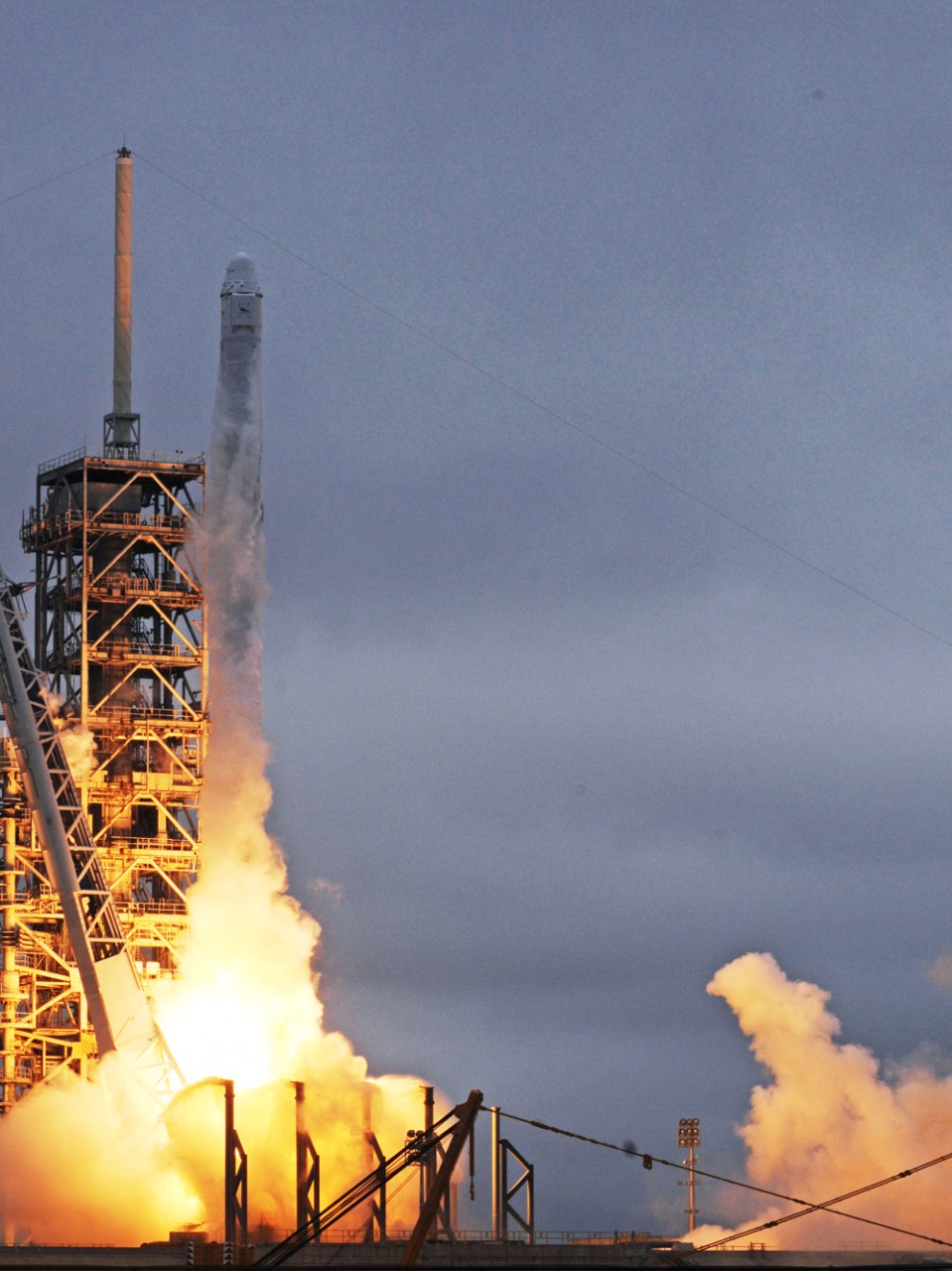Business Impact
SpaceX Plans to Fly Tourists to the Moon—but 2018 Is Ambitious
The company isn’t known for meeting its own deadlines, and there’s a lot of testing yet to be done.



Elon Musk’s first space tourists are scheduled to take a trip around the moon by the end of 2018—but there’s a lot to get done before that happens.
His rocket company, SpaceX, has announced that two private individuals have paid a “significant deposit”—or a “little bit more than the cost of a crewed mission to the space station”—to secure spots on the journey of a lifetime. The trip will see them launched into space aboard a new people-carrying Crew Dragon capsule, lofted by a Falcon Heavy rocket. Then, they’ll head toward the moon, loop around it, and be returned to Earth.
The unnamed passengers, who already know each other, will spend around a week completing the journey. The capsule should complete the mission autonomously, though in an emergency the crew may have to step in. If all goes to plan, the pair will become the first people to complete such a trip in over 40 years.
But their scheduled launch date may yet slip. SpaceX is no stranger to setting ambitious deadlines and then failing to meet them. Musk promised to put people in space within three years back in 2011 (he still hasn’t). He vowed that the Falcon Heavy rocket would first launch in 2013 or 2014 (its debut is scheduled for this summer).
There’s also rather a lot of testing to squeeze in before the moon mission takes off. To be sure, it’s technically possible—Apollo showed us that—and SpaceX does appear to have the technology to pull it off. But the company has never launched its Crew Dragon capsule into space, let alone a human.
To that end, the company will launch its Crew Dragon capsule without passengers on a mission to the International Space Station before the end of the year. Then it hopes to launch another Crew Dragon mission, this time with NASA astronauts aboard, in the second quarter of 2018. And finally, it hopes to launch its two paying customers by the time that year is out.
The timeline can’t tolerate much in the way of failure. As the SpaceX catastrophe of last summer showed, once misstep can cause severe delays, and one report already suggests that the NASA-crewed flight might not happen on time. Plus, as the Guardian notes, the company will also have to keep the Federal Aviation Authority happy the entire way.
Even then, the trip isn’t guaranteed to be safe. But Musk insists that his customers will be thoroughly trained, and “are entering this with their eyes open, knowing that there is some risk here.”
But, says Musk, if all goes to plan, this will be "a really exciting mission that hopefully gets the world really excited about sending people into deep space again." He’ll be hoping so, because space tourism could prove quite the little earner for SpaceX—one that helps along Musk’s grand vision of Mars colonization.
(Read more: AP, “Mr. Musk Goes to Mars,” “Following Rocket Failure, SpaceX Struggles to Relaunch”)